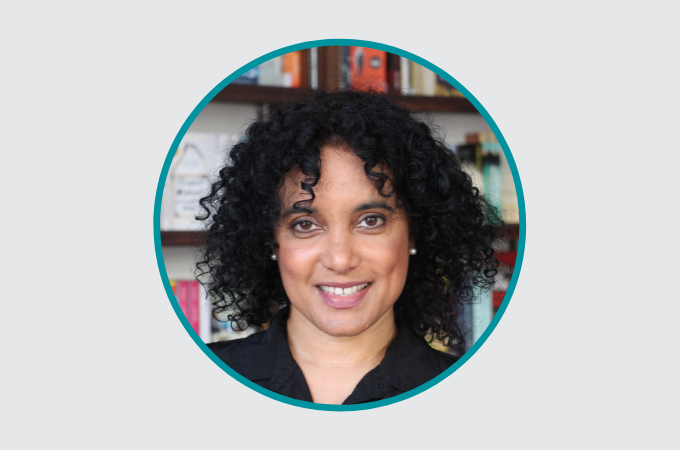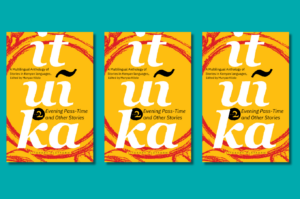
In July 2020, a South African artist and academic, contracted to work for the German Miss Read Art Book Festival emailed me to ask who she could approach for formal permission to republish one of my academic essays.
I had published the article, titled: “Overcoming the ‘daily bludgeoning by apartheid’: black South African women writers, agency, and space”, in 2017 by the journal African Identities, which is owned by the multi-national publishing behemoth, Taylor and Francis.
In academia, this is not an unusual occurrence or request: articles are often reprinted in different publications if they are deemed impactful.
My correspondent informed me that she had already asked Taylor and Francis for permission to republish my work, but that their asking fee of 900 Euro for permission to use my article was too steep for the budget she had to work with.
My curiosity piqued, I asked for more information about the project seeking to republish my work. My correspondent informed me that she was working as an invited guest editor for the “Miss Read Festival”, an Art Book Festival hosted annually in Berlin, Germany, which usually gathers around 300 exhibitors from around the globe. Because of Covid19, the festival would not be held in 2020 – instead the organisers were publishing a workbook and moving some activities online.
My article would fit with the theme of the workbook, called “Decolonizing Art Book Fairs: Publishing Practices from the South(s)”. This book project is described in publicity materials as raising a number of pertinent questions around power relations, decolonization and exclusion in global publishing circuits. “Can we decolonize art book fairs? Can we decentralize knowledge and deconstruct privilege in our contexts? Decolonizing Art Book Fairs aims to rethink through the existing and speculative frameworks of organizational practice in the art book fairs.”
My research examines the material conditions and structural oppressions within which Black women writers were embedded during and after apartheid. I was not sure how this work resonated with the concerns of the “Miss Read” Project, but advised my correspondent to communicate directly with the editors of the journal in which it was published. I expected, once permissions were received from the journal, that she would come back to me with a publication plan, including a book contract between myself and the proposed new publication, which is standard practice in academic publishing. I then forgot about the email.
More than a year later, I received an invitation from the same editor to the book launch of “Decolonizing Art Book Fairs”, along with a solicitation to participate on a panel during the launch. I was surprised. Though we had corresponded about reproduction permissions, at no point did the editor ACTUALLY ASK me for permission to republish by work, or whether I wanted to be part of this project.
The local editor went on to inform me that because they did not have the full 900 Euro (the cost of the entire article), they would be publishing less than three pages of my work, for which they paid 117 Euro.
I protested that I had never given permission for my work to be used in the first place, let alone butchered in this way. The response was that they had formal permission, and that it was “unfortunate” that I found this “partial publishing upsetting.”
The entire editorial team was by now copied into our correspondence and they expressed a desire to resolve my unhappiness amicably. I ask them to take my work and my name out of their book, a request they honoured.
The situation I’ve described is instructive in what it illustrates about global publishing circuits and power-relations. It shows how easy it is to diminish African intellectual labour, and treat it as raw material to be commodified in the international knowledge production industrial complex. It exemplifies the trend of expediently inserting the word “decolonizing” into a project’s title, while replicating the very practises decoloniality seeks to critique and dismantle.
This interaction is replete with a number of ironies. The first of these is that a book project claiming to be concerned with “decolonizing”, and foregrounding publishing practices from the “South(s)”, with an aimed objective of decolonizing art book fairs, saw absolutely nothing wrong with taking my intellectually labour without my permission.
Legally the editors may have acted correctly, initially: copyright of the article I published resides with the journal that published it. However, in subsequent correspondence, when I asked to see in writing the permissions granted to “Miss Read” to republish my work, it was clear that the journal itself expected the editors to seek permission from me too. Taylor and Francis stated to the editor: “Should you wish to reuse the 3 pages, and make alterations/ edit for your new publication, this will require further permission from the original author/authors”. No attempt to do this was ever made by the “Miss Reads” editorial collective.
How does an organisation which treats a writer from the global south in this manner intend to ethically steward a conversation around decolonization and publishing, when in its own practices it acted so dismissively?
A second irony lies in the organisers’ choice to pay a multinational corporation for MY intellectual property, rather than commission an original piece of writing from a writer in the global south. The Taylor and Francis Group generated revenue of 559.6 million Pounds in 2019. It is one of the conglomerates that dominates academic publishing globally: academics like me are pretty much forced to publish in its peer reviewed journals in order to succeed in academia. We do not get paid by journals or Taylor and Francis to publish with them; yet our intellectual property sits behind paywalls that generate huge profits for the parent company. In this case it costs 900Euros to access my work there. From this transaction, people like me who create the knowledge, receive not a cent. Rewards accrue in other, indirect ways: through appointments to academic jobs, being granted tenure, or promotions through the ranks of the professoriate.
The third and most wrenching irony for me lies in how little things have changed for African women writers. My research focuses on the structural barriers to publishing for Black women writers in South Africa. In a letter to me in 2011, the first Black South African woman to publish a novel in English, Miriam Tlali, whom I had interviewed for the article “Miss Reads” sought to republish, wrote poignantly about her work being repeatedly stolen and used without her permission:
“A lot of organizations have gone ahead and used my works without my permission nor have they bothered to offer anything for my intellectual proprietorship. I used to read in the papers that my book Amandla, published by Ravan Press in 1980, “has sold tens of thousands of copies,” yet I never received any proceeds or royalties from those sales.
“Another ill-fated book, Bleeding Shoulders, was to be my fourth published major work. From the moment it became known that I was about to complete it in the late 1990s, it was hunted down. The whole fuss indicated clearly the ‘cinderella’ kind of existence I had to go through to succeed as a writer. Let it suffice for me to say that ultimately I was forced to momentarily set its publication aside as I had discovered that a manuscript of the book was in the hands of an academic individual abroad. The irony of it all was that I had presented and submitted it to a prospective publisher here in South Africa! Without my permission, ‘someone’ was already in possession of the manuscript without me having been informed.”
I am in no way comparing myself to Tlali in terms of the extreme brutality she endured from the apartheid state, nor her ability and impact as a writer. I have the immense privilege of a stable, well-paying job. This is a form of financial security and class privilege Tlali never enjoyed in her life.
But it saddens and enrages me that four decades later Black women’s work from Africa is still seen as a legitimate target for the taking. I wrote to the editors of the “Miss Read” Project to reflect on their approach to me as an African writer. I told them I found their way of operating extractive, a repetition of the colonizing project of taking our intellectual work without our consent, for the benefit of their European projects. I still await a reply.









Nuzo Onoh August 31, 2021 02:56
This article leaves me fuming so much I'm not sure if to rage or cry in weary despair about this repetitive syndrome of Literary abuse inflicted incessantly on African writers! Articles like this one shows just how little has changed and how much still needs to be done. Still we rise!